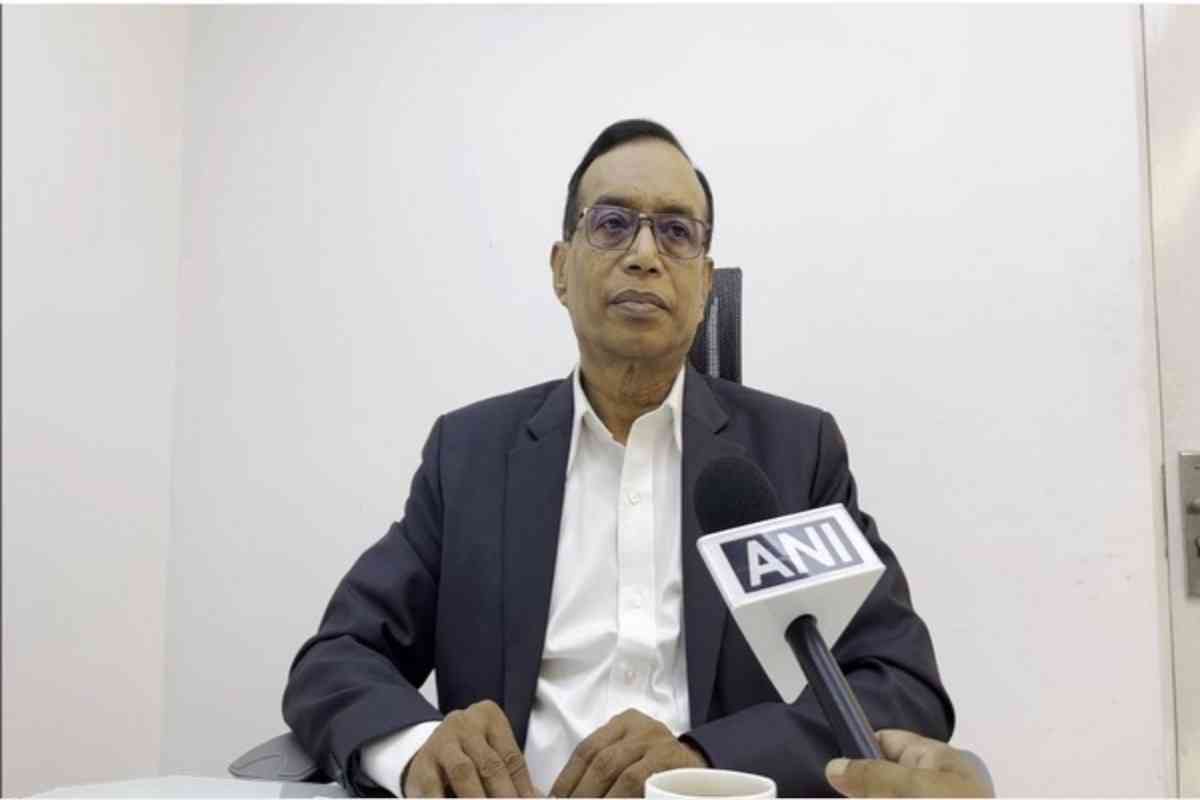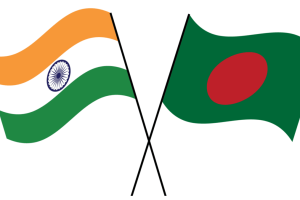Trade with India will not be affected in the long term due to unrest, despite the decline in trade between the two neighbours, Bangladesh’s top business body chief said late on Monday.
“After the government change (in Bangladesh), we find some downflow trade between the two countries. But I believe this is not for the long term,” Md. Hafizur Rahman, Administrator of the Federation of Bangladesh Chambers of Commerce and Industry (FBCCI), said exclusively to ANI.
“India is the second largest import source of raw materials and other goods for Bangladesh. Bangladesh imports from India around USD 14 billion annually. Major part of import is raw materials. When export declines, import of raw materials also declines”, he added.
Rahman said that Bangladesh would overcome the difficult situation soon.
“Recently, Bangladesh faced such a situation where we saw some decline in the import of raw materials. On the other hand, the previous year, we had imported around USD 83 billion from the global market. Because of the shortage of foreign currency reserves, high exchange rate, and big change in the exchange rate from 85 taka per dollar. Last year, Bangladesh’s imports declined around 20 per cent. It is because of the foreign currency and reserve crisis. I believe within short times, we will overcome,” Rahman, who is also a member of the Bangladesh Competition Commission, said.
“It is a revolutionary change. It has effects for the time being. Now it is calm and quiet. We have the trade relations. Bangladesh’s government is not restricting anything. For our industry, for the people, we want trading relations (with India) in take place all the time,” he added.
Rehman said that despite the political uncertainity Bangladesh’s trade relations remain healthy.
“It is not all about the political uncertainty. As I mentioned that overall imports declined 20 per cent in relation to the previous financial year. When our total import declined 20 per cent, 5 per cent declined with India is a good sign, not a bad sign. It’s not 20 per cent declined, it’s only 5 per cent that means trade relations is very good even in the adverse situation that I mentioned about the exchange rate and foreign currency reserves. Trade relations are very healthy”, Rahman said.
The Bangladesh interim government appointed Md. Hafizur Rahman as the administrator of FBCCI, dissolving the elected executive committee after the August changeover. The new government considered the committee that consisted of the business community was biased to the previous Sheikh Hasina government.
Md. Hafizur Rahman, an additional secretary of government, will conduct an election for the executive committee and oversee the activities of the business organisation for the interim period before handing over the responsibilities to the new committee.
“India remains a major trading partner always. We have to import raw materials and daily commodities like edible things onions, rice, vegetables, cotton, and fabric. We import big amount of cotton. We also import capital machineries from India. It will never change. These imports will be increased in the future”, he said.
“The question is, in terms of import, how much we export to India. Last year, we exported around USD 2 billion. We imported around USD 14 billion. So, the Export-import gap is huge. It’s a concern always. I believe that the gap should be reduced. But we have limited products to export to India. India has a huge basket of products to export into Bangladesh. This is the strength of India”, Rahman said.
Two months ago, a student-led movement ousted Bangladesh’s Prime Minister, Sheikh Hasina, after weeks of protests and clashes that killed over 600 people, including 44 policemen. Hasina, 76, fled to India on August 5 and an interim government led by Nobel Laureate Muhammad Yunus was formed.
Bangladesh’s business community wants undisturbed banking, law and order situation, and transport facilities, especially for exports and imports.
“Bangladesh business community would like to do their business smoothly, especially the banking sector that deals with exports and imports, should function smoothly., law and order situation. If any problem arises, govt is going to support. Business community asked the government to support them in banking facilities and also support transportation. The business community wants; these should remain undisturbed”, Rahman said.
Due to the unrest after the August 5 uprising, some Indian visa centers in Bangladesh were attacked. Subsequently, India imposed visa restrictions due to security concerns that affected trade.
“Many people used to visit India, around 1.4 million in a year for medical tourism and tourism also, so recent visa restrictions, only limited people can go there, imposed by India, affected trade also. These people not only go for tourism; some kind of business are there, back packers, travelers — they used to bring goods small scale. This is one issue; that’s why imports from India reduced. I believe when visa restrictions will be withdrawn, then trade will be normalised for goods and services, he said.
“Now the government is stable. If the Indian authority asked for extra security, certainly that will be given. It is the duty of the government. I believe visa restrictions should be removed. People can visit India for trade and medical tourism,” he added.
The FBCCI administrator said that there were ample opportunties to incerase trade between India and Bangladesh.
“I believe there are ample opportunities to increase trade between the two countries, not only two countries but also among the SAARC countries. We need to revive the SAARC. SAFTA should be made a very vibrant regional organisation. By this time, it should be a customs union to proceed properly. After 2014, we did not get any meetings of SAFTA, so further liberalisation under SAFTA is stopped. If we can .. this regional instrument, we can have much more trade in these countries. Within SARRC countries, total trade is not more than 5 per cent. In other regional countries, ASEAN has more than 12 per cent trade within the ASEAN countries” said the head of Bangladesh’s top business organisation.
“We can also focus on transit and motor vehicle agreements. If we could sign the motor vehicle agreement, SAFTA can add an opportunity; products can be transported from one country to another, but still in unfinished agenda,” he added.





